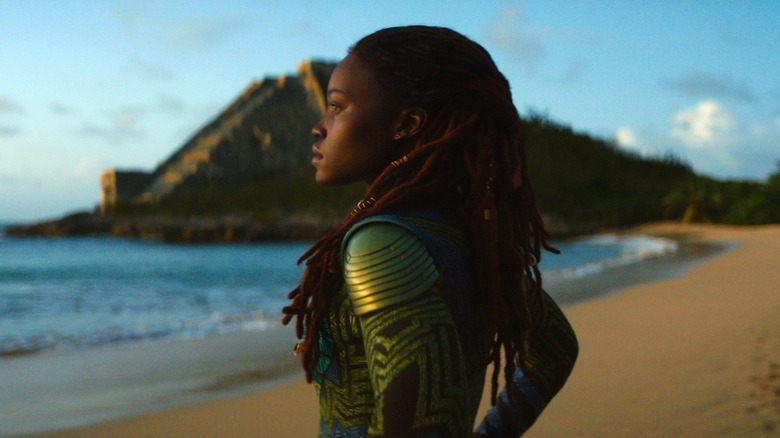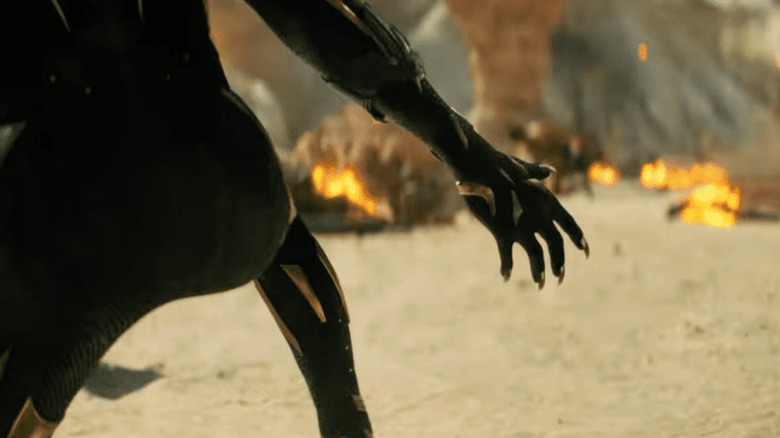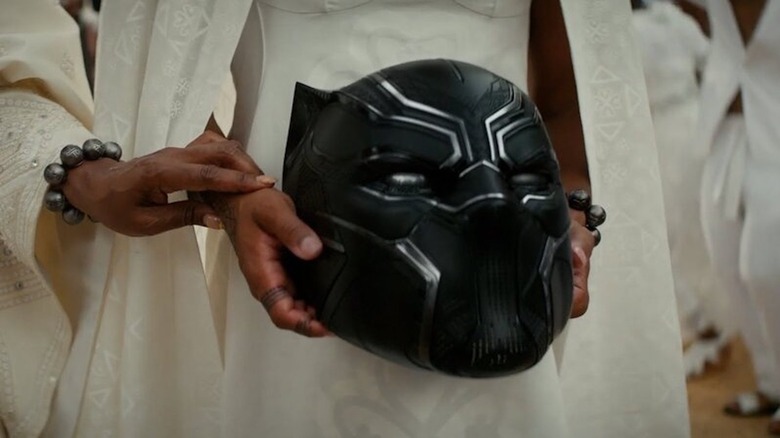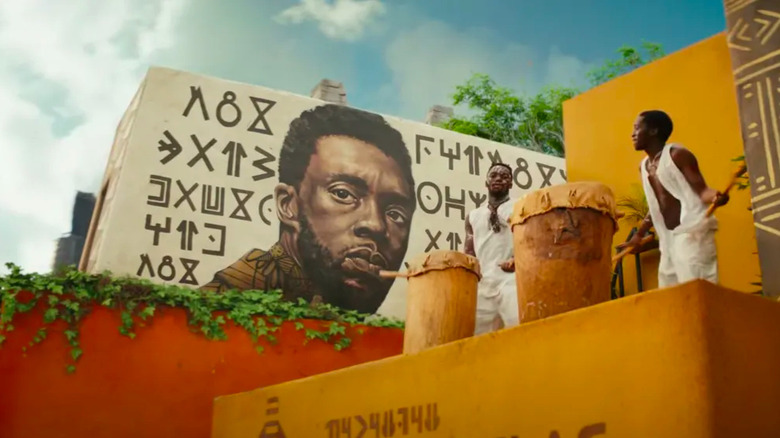Black Panther: Wakanda Forever Credits Scene Explained: The Ones You Love Are Never Truly Gone
Major spoilers for "Black Panther: Wakanda Forever" ahead.
I should probably say this right out the gate, but there is no second post-credits scene in "Black Panther: Wakanda Forever." While you should try and stay through the credits to see how many people worked on this massive film, you won't be greeted by another tease for an upcoming Marvel project. This was probably something you were thinking of doing – the MCU has made us accustomed to expecting some kind of big reveal with each credits scene that sets up the next adventure.
However, it's for the best that there's only one credits scene in this emotionally-heavy movie because the one we got was absolutely perfect. In a movie that was all about honoring the late Chadwick Boseman, the mid-credits scene to "Wakanda Forever" serves as an important reminder that his spirit and legacy as a dynamic performer will carry on for future generations.
'My name is T'Challa'
The credits scene is a direct continuation of the film's final moments, with Shuri (Letitia Wright) completing a grieving ritual on a Haitian beach. It was one that her now-deceased mother Ramonda (Angela Bassett) had wanted to show her earlier in the film, but was interrupted by the presence of Namor (Tenoch Huerta Mejía). Thanks to the invitation from Nakia (Lupita Nyong'o) to come visit her in Haiti whenever she wants, Shuri is finally able to complete it, still grieving the loss of her brother (Boseman) and mother.
After seeing the memories of T'Challa in one of the film's tributes to the late actor, Shuri finds herself still alone on the beach. However, that doesn't last long, as Nakia comes to visit her on the beach with a surprise in tow. It is a young boy that the retired War Dog calls her son, Toussaint. Although we knew that Nakia had left Wakanda after T'Challa was taken by the Blip, this was the first time that we knew that she was pregnant at the time with his son. She explains that she and T'Challa had a plan in place for his death, explaining why she hadn't gone to his official Wakandan funeral.
However, the biggest surprise comes when Toussaint asks Shuri to keep a secret for him. He says that Toussaint is simply his French name and that his actual name is T'Challa, named after his father. Shuri smiles at this, tears in her eyes, before the main credits roll.
Why this ending matters
There really is no other way we would have wanted the film to end. One of the major themes of "Wakanda Forever" is learning how to let go of your grief while still honoring those who are no longer here. This is something Shuri struggles with throughout the film, constantly telling Ramonda and others that T'Challa is dead, and that his presence can't actually be felt anymore. However, she eventually learns that grief should not consume her and that her deceased loved ones are still a part of her life, even if they are no longer physically present.
Case in point, his and Nakia's son. While he might have never met his father, he knows that he was loved and cherished by him. Thanks to his mother, he has a grasp of the importance of T'Challa's influence not only on Wakanda but the rest of the world. It's unlikely that he'll ever take up the Black Panther mantle, but he will likely honor his father in other ways as he grows up. The fact that he's even in the MCU in the first place is proof of that.
The ending of "Wakanda Forever" is not a mournful reminder of Boseman's passing. It's a symbol of how the actor inspired generations that anyone can be heroes, on and off the screen. There is no need to worry about whether he will be remembered, as his legacy has been immortalized in the lives he impacted.
A tribute for a king
Boseman proved that superheroism was not something reserved for white actors and that everyone deserves to be properly represented on screen. "Black Panther" helped showcase a side of the African diaspora that was rarely seen in popular culture, and much of that came from Boseman's electric performance as T'Challa.
Of course, he shouldn't be remembered solely for "Black Panther" or Marvel. Boseman's work spanned several genres, from crime procedurals to biopics and epic fantasies. While it's sad that he couldn't add more projects to his filmography, the ones he did complete showcased his talents. It was these talents and the lives that he impacted because of them that "Wakanda Forever" honors throughout its story. There is no need to worry about whether he will be remembered, as his legacy has already been immortalized both within the MCU and the larger cultural sphere.
"Black Panther: Wakanda Forever" is now playing in theaters.



